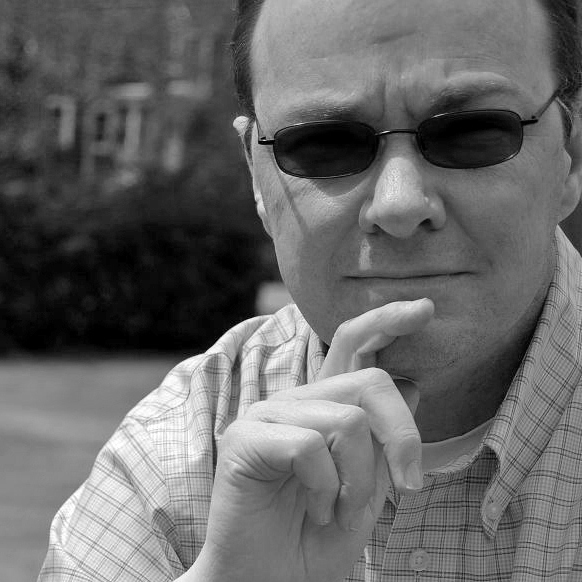Advertisement
The Myth Of The Great American Novel

Harvard professor Lawrence Buell’s new book about the Great American Novel should come with a time machine. After all, the idea of a single book, Balzacian in scope, encapsulating all that this country is and stands for, and speaking to a diverse population like ours, is quaint at best. Never mind the unlikelihood that any book today, other than those serialized for the small screen by HBO, could capture our collective attention. After all, wasn’t it just a few years ago that Philip Roth predicted that in a couple decades reading serious fiction would be the preserve of a small number of devotees, sort of like the ballet and opera are today?
The Great American Novel is an anachronism, an ideal that existed in the heads of long-ago critics and some serious and hubristic novelists. Or, perhaps it was a predictable manifestation of American exceptionalism: Why shouldn’t there be an epic novel that encapsulates the wonder of us? However, in our Age of the Transient, where tweets, texts, TED Talks and flash fiction rule the day, the idea is as outdated as my tie collection. I mean, is anyone expecting an American Dickens to emerge? Any publisher today would like to discover the Great American Novelist, but most would prefer an author with 10,000 Twitter followers and a friend who works for Oprah. In other words, “Great” is fine; another “Fifty Shades” is orgasmic.
the expectation that a monolithic work of literature capable of capturing the so-called spirit of the age is kind of a crazy notion to begin with.
In his book, “The Dream of the Great American Novel,” Buell tells us the idea, which arose after the Civil War, is alive and well, though admits that at first he’d suspected it was nothing so much as a holdover from an earlier century. Yet, when he searched Google, 70 million hits turned up. Initially, he writes, the term Great American Novelist reflected our national anxiety over keeping up with the literature of our European cousins. Slowly, we got our act together and by the mid-20th century, the GAN, as Buell abbreviates it, became mere fodder for discussion and, more recently, content for Internet lists and bloggers.
Buell’s book rekindles the debate about our great and near-great books, and though interesting enough, these days such talk seems like nothing more than a parlor game perfect for downtime at a Mensa mixer. Many of us may even have a list of potential candidates (see mine below), but even Buell’s title undermines the possibility of there being a single novel that could serve as our national epic. Throughout his book, he maintains a healthy skepticism that the GAN is nothing more than “a chimera.”
In the April 21 New Yorker, Adam Gopnik reviews Buell’s book, not wholly enthusiastically, and raises several issues about the ideas of “great” and “American” as these terms relate to fiction. What I came away with was how time has a way of dustbin-ing the once-great (I’m looking at you, John W. De Forest, you who popularized the term Great American Novel in the first place before sliding into obscurity). In other words, culture demands that we be au courant regarding trends, events, mores and sensibilities, aesthetic movements, etc., making it easy to see how what was once great and relevant, so quickly seems moth bitten. Take my closet full of ties, for example.
Times change and our culture is dragged along with it. When I was growing up, my favorite novelists were ones who came of age in the 1950s. Back then, the idea of a Great American Novel didn’t seem farfetched. Faulkner, Welty, Hemingway, Baldwin and O’Connor were all still alive. Kerouac published “On the Road,” and a few decades later came Toni Morrison and many others. If it didn’t happen during those decades, it probably won’t now.
Advertisement
If there is to emerge in our digital age a national narrative, it will involve the recent trend of self-publishing.
So why even talk about it? I think it’s safe to say we can finally let go of the idea of the Great American Novel, and accept the fact that in this melting pot we live in, the expectation that a monolithic work of literature capable of capturing the so-called spirit of the age is kind of a crazy notion to begin with.
If there is to emerge in our digital age a national narrative, it will involve the recent trend of self-publishing. Each week, thousands of books are set loose into this world, written in hope, published as ebooks and paperbacks, and promoted on social media, websites, through independent bookstores and by word of mouth. True, many are not that good, and an overwhelming number are about vampires and zombies or could feature a Fabio lookalike on the cover. Still, Americans today are telling their stories in record numbers. Add to this the multitude of mini megaphones that is social media, and these aggregate phenomena may be the closest we’ll ever get to a grand narrative. Consider these things our ersatz Great American Novel, fractured and homegrown, just as you’d expect from an autonomous and divergent population. It’s not something you can put on the shelf, but rather a living and thriving tale told in a million voices. It’s chaotic, of uneven quality, and over-reliant on sex and horror.
Which sounds like a pretty good description of modern America, if you ask me.
If there is such a thing as the Great American Novel, what book(s) would you nominate? Tell us in the comments. Here are John Winters' picks:
"The Great Gatsby" — F. Scott Fitzgerald
"On the Road" — Jack Kerouac
"Beloved" — Toni Morrison
"Moby Dick" — Herman Melville
"The Sound and the Fury" — William Faulkner
"Freedom" — Jonathan Franzen
"Adventures of Huckleberry Finn" — Mark Twain
"Sabbath’s Theater" — Philip Roth
"Seize the Day" — Saul Bellow
"Their Eyes Were Watching God" — Zora Neale Hurston
"U.S.A. Trilogy" — John Dos Passos
The Naked and the Dead" — Norman Mailer
